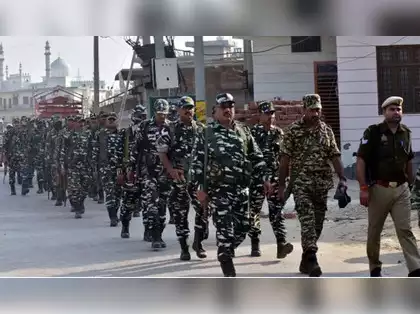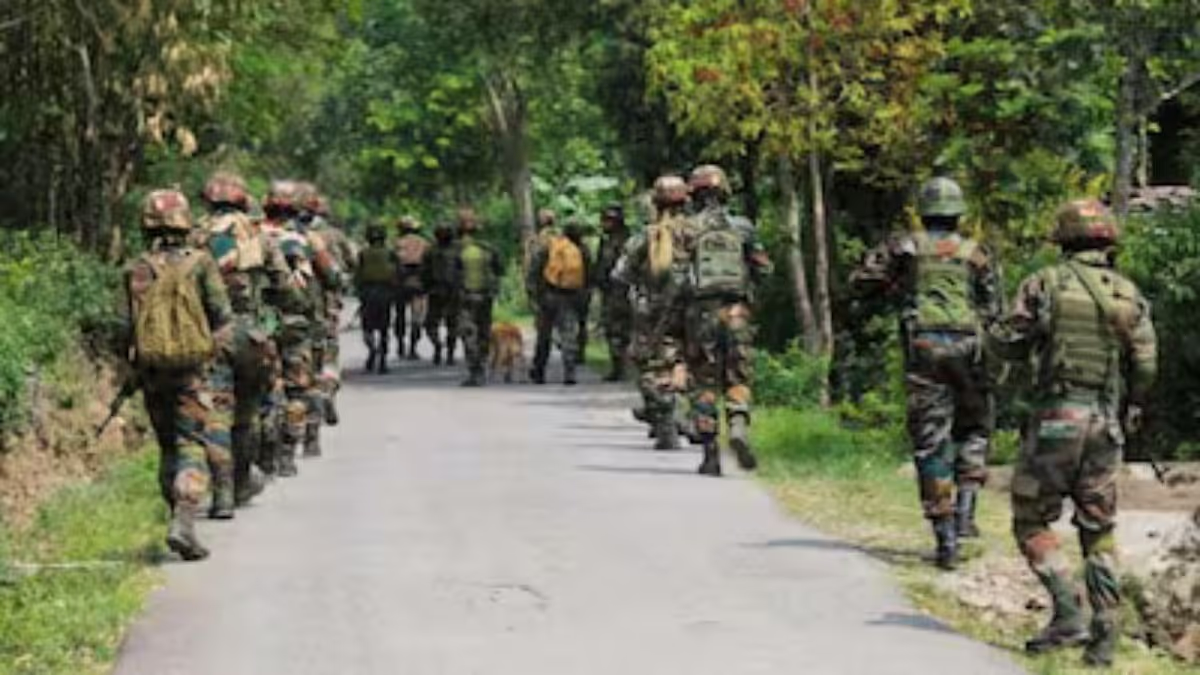Key Highlights:
Sparring violence has involved Manipur recently as firing killings have continued to rise along with widespread unrest with several deaths reported in recent incidents. On November 18, 2024, a protester was reportedly killed in the district of Jiribam as civilians and security forces clashed. Six bodies were also found floating in Assam’s Barak River, further increasing tensions in the area.

The unrest had resulted in the imposition of curfews and internet shutdowns in many districts of Imphal East and West as the violence had to be curtailed and affairs restored to normalcy. On the streets, public anger had surfaced at its intense stage as mobs stormed the houses of politicians, reflecting deep-seated frustrations among the populace.
Central Government’s Response
After the situation deteriorated, Union Home Minister Amit Shah held a high-level meeting to analyze the security situation and chalk out strategies to get the region back on track. To strengthen security and help bring the region back on track, the centre has sent an extra 50 companies of CAPF to Manipur.

In addition, National Investigation Agency (NIA) has taken over three important cases related to violence, which clearly illustrates a tendency to address the root cause with equal emphasis on bringing criminals to the court.
Political Reactions and Criticism
Increasing violence has drawn scathing criticism from leaders of the opposition. Congress MP Rahul Gandhi lamented that the hatred spread by the Bharatiya Janata Party BJP has made the unrest prevail. He reminded Home Minister Amit Shah to perform his duties in restoring peace and appealed to the Prime Minister to visit the affected areas.
The call was echoed by Congress General Secretary Jairam Ramesh, who said the Prime Minister must meet a multi-party delegation from Manipur and hold a national-level all-party discussion before the Parliament session commencing on November 25. He demanded that Amit Shah resign and Manipur Chief Minister N. Biren Singh as he proclaimed the state had simply broken down to an overall basis of governance.
Historical Background and Deeper Issues
Recent unrest in Manipur can be traced back to the long history of ethnic conflict and political complexities. The state has experienced episodic violence over the years, largely due to latent conflicts between different ethnic groups over issues such as land rights and political representation, as well as cultural identity.
The violence currently witnessed is more brutal in nature whereby clear cases of armed groups setting house on fire and clashes that leave scores dead and property destroyed. There have been body finds in the Barak River, which has only given the crisis a gloomy face, making clear intervention urgent.
Security Measures and Public Safety
Releasing more CAPF companies is an effort to beef up security and stop violence from spreading any further, though much would depend on how these arrive and the rapport they were able to establish with the local populace. Imposition of curfew and internet shutdowns means to maintain order, but the impact has been on the grass roots and it has affected daily life and communication, raising several civil liberties concerns.
Appeals for Dialogue and Reconciliation
While calls for dialogue and reconciliation are on by different sections in the midst of chaos, inclusive discussions and negotiations over the root cause of the conflict are reiterated time and again by civil society organizations and community leaders. Trust-building between the various communities of Manipur is deemed as a way to sustainable peace.
International Focus and Concerns Over Human Rights Issues
International focus has come on Manipur violence. Human rights bodies have raised a voice of concern with reports of extra-judicial killing, arbitrary detentions, and other violatons. Investigations by impartial authorities to work towards accountability and dispensation of justice are required.
Economic Impact and Humanitarian Crisis
Violence has greatly afflicted the local economy and disrupted all related trade, agriculture, and daily commerce. The shootings have displaced numerous residents, and there is a humanitarian crisis that needs immediate attention. Relief efforts are underway, but accessing and helping people in these affected areas remains difficult due to security concerns.
The Way Forward
This Manipur crisis calls for dealing with it at different levels- immediately through security-related measures, politically, and eventually, through socio-economic developments. The efforts have to be concerted between the central, state, and local governments in rebuilding lost trust and creating peace- and stability-friendly environments.
The more agencies like NIA participate in the process, the more it will get closer to bringing forth those individuals who initiated and sustained the violence. However, legal actions to this effect have to be accompanied by moves in redressing the grievances of diverse groups of society and fostering social cohesion.
Conclusion
The situation in Manipur is very much volatile, and the latest events bring into sharp focus urgent recourse to comprehensive interventions that will restore peace and order. Deployment of additional security forces and involvement by investigative agencies marked by the central government indicate the gravity of the crisis. Sustained efforts towards redressal of issues and reconciliation among various streams of community across the state will help achieve lasting peace.
Such has been the case in Manipur, as the nation watches the developments regarding the insinuation and complexities of regional conflicts against the importance of timed and effective governance.
For Latest News Updates Click Here
